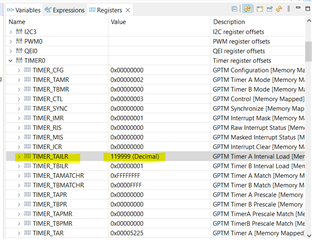Part Number: MSP432-RTOS
Other Parts Discussed in Thread: SYSBIOS
Dear Forum,
I would like to share an issue that has taken me a few days to troubleshoot. I am using SimpleLink MSP432E4 SDK v4.20.0.12.
Using an MSP432E processor at 120MHz, I expected the timestamp returned by Timestamp_get64 to overflow after 264 / 120MHz = 4874 years.
Unfortunately, this is only correct if you don't check the "Use Clock's timer" checkbox. If you check this box, the timestamp uses the system clock's timer and the system tick over flow counter, which is uint32_t. As a result, the timestamp overflows at 232 * system tick. The system tick is normally only 1ms, so the timestamp overflows after 49 days. In my case, I changed the systemtick to 500µs, which gives about 25 days.
Dear TI experts,
could you increase the tick over flow counter to 64 bits, so that Timestamp_get64 always expires after 4874 years or provide another solution?
Or could you add a comment to the "Use Clock's timer" checkbox?
By the way, could you provide a link to the documentation of Timestamp_get64 and its configuration options specifically for the MSP432E implementation?


